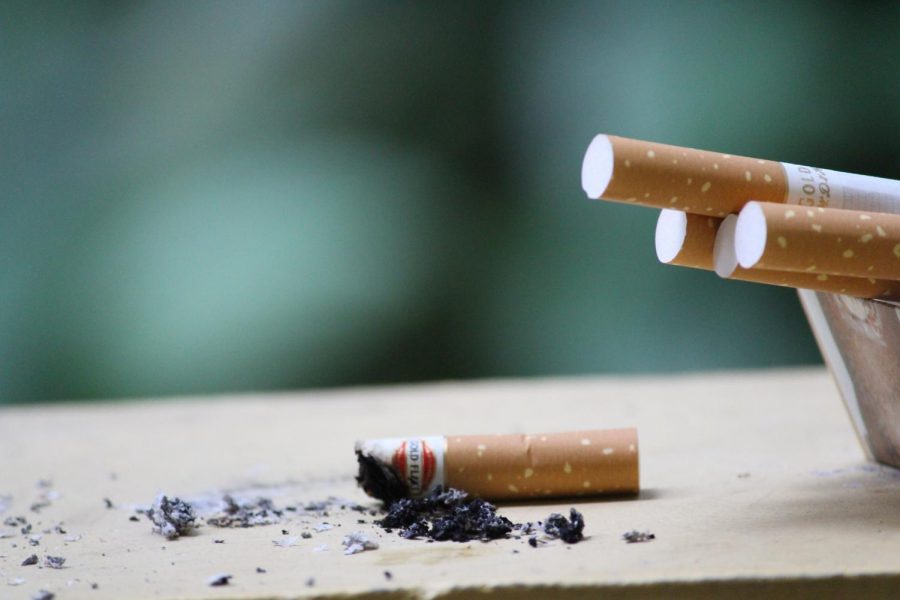Don’t Do The Drug If You Can’t Take the Search
An editorial on the T.L.O. vs New Jersey case of 1985
March 15, 2018
A New Jersey high school felt that they had the right to search a student’s bag after she was caught smoking. Is this an invasion of privacy? According to the school and the supreme court, it is not.
In 1985, a student with the initials T.L.O. was caught smoking in a public school bathroom. She was taken to the principal’s office and her belongings were searched. At the time, T.L.O. had cigarettes, marijuana, and a list of students owing her money. She was promptly charged with possession of marijuana and found guilty, then sentenced to a one-year long probation.
In this case, T.L.O.’s rights to privacy were not violated. The Center for Public Education states that “if contraband items are in plain view, then they can be seized without probable cause, reasonable suspicion, or warrant”. In this case, some of T.L.O.’s belongings were in plain sight. The contraband that she had been using to smoke was visible and was reasonable grounds to be punished on.
In addition, The Center for Public Education states that “school officials need reasonable suspicion to search personal items” such as purses and book bags. Because T.L.O. had been caught smoking, the school officials had reasonable grounds to search the contents of her bag with the suspicion that she had been breaking a school rule.
In the Supreme Court ruling of the case, Justice White stated that “the legality of a search of a student should depend simply on the reasonableness, under all the circumstances, of the search.” In other words, in order to be reasonable, a search cannot be excessively intrusive. In this case, the school officials were not being excessively intrusive. In other cases, officials force students to strip down to search their bodies for contraband or hidden items. In this case, the officials simply searched her purse with a reason, and found what they suspected.
In the final ruling of the case, T.L.O. lost the case as it was decided that the officials’ actions were constitutional. Despite this, the case still remains extremely applicable and relevant to other cases surrounding students’ privacy in schools.
According to the CDC Fact Sheet for Youth Tobacco Use, 20.2% of high schoolers have used tobacco products as of 2016. Whether it be on campus or outside of school, these students put themselves at risk of having their belongings searched at school if they bring tobacco products to school with them. As vaping is on the rise among teenagers, I predict that there will be more cases similar to this in the future as administrators exercise their right to search students’ bags after catching them vaping on campus, and possibly getting them into more trouble than to begin with.
In my opinion, schools do have the right to search students’ bags if they have probable cause. In this case, because the student was smoking on campus, the school administrators had the right to look into T.L.O.’s bag. However, if she hadn’t been doing anything against the rules on campus, then I do not think that they would have the right to search her belongings.



